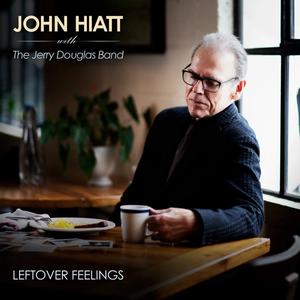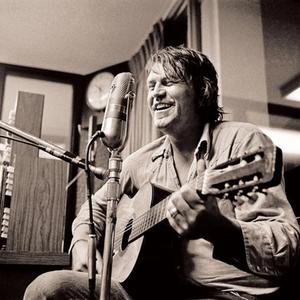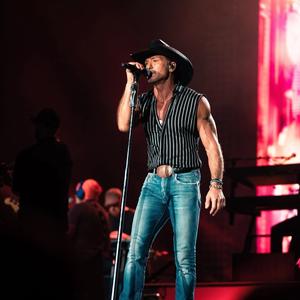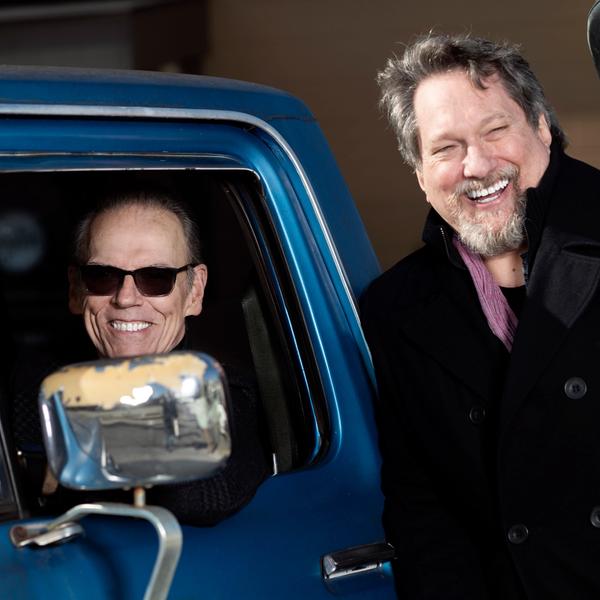




Link copied

John Hiatt and Jerry Douglas are a match made in heaven, so it’s staggering to realise that their new album Leftover Feelings marks the first time they’ve collaborated on a project of their own. Hiatt is the Indianapolis native with a voice that’s warm and trusty - like a favourite, weathered baseball glove - and songs that get under your skin. Douglas is not only the veteran Ohio-hailing producer, but the mightiest bluegrass dobro player around – or as James Taylor calls him, the “Muhammad Ali of the dobro”.
The two first met when Douglas was playing on the Nitty Gritty Dirt Band’s Will The Circle Be Unbroken Part 2, and Hiatt turned up to sing one of his songs with Roseanne Cash. Like ships passing in the night, they kept running into each other at festivals across the world, but it was only when their respective managers suggested they make an album together that this project fell into place. Hiatt brought the songs and stories, Douglas provided his band and production magic – and for four days, they recorded in the exact same place that the Everly Brothers, Elvis Presley, Roy Orbison, Dolly Parton, Tammy Wynette, Willie Nelson, Waylon Jennings and George Jones had previously created musical history: Nashville’s famous RCA Studio B.
Premiering Leftover Feelings in full exclusively at Holler, John Hiatt and Jerry Douglas sat down to reflect on their time in Music City, the magic of working in RCA Studio B and how it all came to shape this iconic collaborative staple.
You’ve both been living and working in Nashville since the 70s. When you moved here, what did you expect – and how did the reality differ?
John Hiatt: I’m not sure what I expected. I’d been through Nashville the previous year and had met a Memphis fella named Bob Frank who was writing songs for a publishing company called Tree. They paid him $25 a week, and I thought, “Man! I want in on some of this”, so I went to work at an insurance company and saved enough to move when I was 18. I found a 1963 Corvair and bought it for $35 in 1970. It had no floorboards; they’d been eaten through with rust, and it burned oil by the quart, but it was enough to get me and a buddy here. We spent our first night in Parthenon Park in central Nashville, sleeping underneath a picnic table.
I started visiting publishing companies with a tape I’d made, thinking I was Stevie Wonder and playing all the instruments on my songs. I was getting nowhere and saved Tree Publishing ‘til last. I figured the tape wasn’t working, so I came in and played three or four songs and they said: what are you looking for? I said $25 a week, and they agreed. I set my goal and achieved it.
Jerry Douglas: Bluegrass music was looked at as the red-headed stepchild of country music, and a lot of bluegrass people said don’t go to Nashville, you won’t get a good deal there. But when I actually moved here to play with the Whites – just Buck White, his two daughters and me, and all this angelic harmony – I found it was a great place for collaboration, I saw a lot of good things about this town right away. It was a fresh start for me. I got here at the right time to usher out what we call the Urban Cowboy scare, and the traditional country music movement started. Nashville seemed like a small town, and everything was centred around country music. Every waiter was a songwriter or a musician waiting for a break. Then all my other friends started to move here, and it was like I’d joined a big family. Sam Bush, Bela Fleck and Mark O’Connor moved here, we started our own groundswell of activity, and it became a totally different place. I didn’t have any ill effects at all from coming here.
Do you feel like the city has drastically changed over the years?
Hiatt: I was in Nashville until 1977, and moved back in 1985, and it was like coming back home. It was designated as an it city by the New York Times about five years ago. This seemed to begin a migration of people moving here from both coasts – and a lot of the music and tech business started coming here, so it’s really exploded. When I lived here in the 70s, it was a modest city of about 400,000. It’s up over a million now in the city proper, and it’s a boomtown. My own kids, who are thirty somethings, can’t afford to live in the city now.
Douglas: I think Country music is worse. But we’ve made inroads; all of a sudden there’s Americana music, which is a big part of this town - it's country music from more of a songwriter’s perspective and without all the big business behind it. The city itself has grown exponentially; a hundred people a day moving here. It’s like a Mecca for country music and a lot of IT people. There are buildings and cranes everywhere, the roads are clogged, we even have a rush hour. Musically the town is better and it’s not just country; so many other genres have been recognised and embraced.
Hiatt: Yes, the pop element of the Nashville sound, like most pop, is a little broader - it’s music for the masses and it’s always been that way. It’s blander with a little less depth, less emotion ringing true. Lots of songs about beer and trucks!
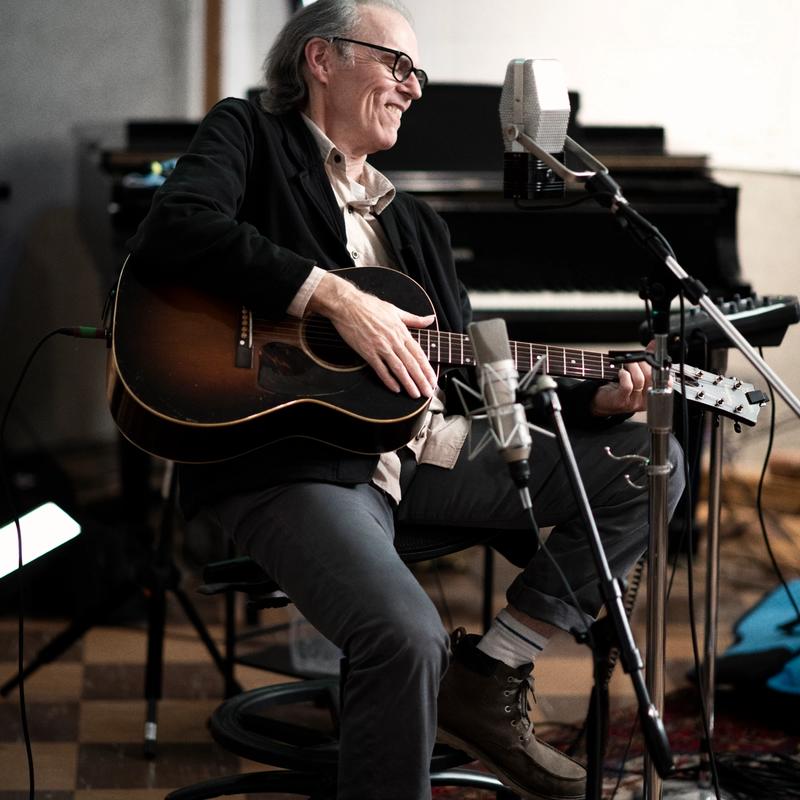
John Hiatt
Do you feel at home in Americana?
Hiatt: I’m not sure who invents these names - they used to call me a roots artist before Americana was invented. I was okay with roots; I drew from the American Songbook, which is fundamentally Southern and blues-based. I’m not really sure what Americana is, but I’m okay, they can call it whatever they want!
Did you ever feel like outsiders?
Douglas: I did at one point, because there was already an established regime of musicians, especially in the studios. That was the end of the old guard that had been here for 20 years. Then this traditional country music movement happened and it opened the door for a lot of musicians like me, who didn’t just play country music. Everyone stuck to their guns and waited, and the earth revolved to the point at which we suddenly mattered more. We weren’t turned away like before; we were embraced by the big record companies.
You recorded the album in the iconic RCA Studio B. When you were working, was a sense of history palpable in its environment?
Douglas: Just recording in Studio B was a big deal. The room has its own life and soul because of how it’s built; the tiled floor, it’s just different. It was at the forefront of the evolution of recording studios.
Hiatt: Yeah, chills and thrills. I’d known the history of the place for years, but I’d never set foot in there. Studio B is the smaller one and is now generally set up more as a tourist attraction. They’ve maintained it as a functioning studio, but the doors weren’t open for commercial recording. However, if you know somebody connected with the Country Music Foundation, you can get in in the evening and record, but you have to tear down your gear at the end of each night, because they had tours the next day from 9 to 5, showing the place off. We asked if we could get in for some time and leave our gear set up, and since there was a pandemic they were limiting the tours, so they offered us four days of round-the-clock recording. Obviously, we jumped at it.
That’s a pretty tight turnaround for an entire album! Was it the quickest record you’ve ever made?
Hiatt: I made a record in 1987 called Bring The Family with Ry Cooder, Nick Lowe and Jim Keltner in four days. So I knew that was plenty of time! The way we record it’s pretty much live off the floor, not a lot of overdubs. We’re going for a performance; not a concocted, multi-track extravaganza.
So that studio is perfect for this?
Hiatt: Yes, it has a feel to it, even though we had to set up at some distance because of the pandemic. We were very considerate of each other’s health, 10 feet apart, and the room’s big enough to do that. They procured tall baffles with plexiglass see-through upper halves, so we could see each other. There was distance, but even then, it’s so intimate in that room. The sound has just got a magic to it.
How did you achieve such an organic vibe on the album?
Douglas: Well, this was one of the first times we’d been able to all be in the same room to play together, so there were all kinds of emotions and feelings. Everyone listened to what was going on around them and adapted to the situation. Even though it’s billed as “John Hiatt with the Jerry Douglas Band,” we moved around him and became the glove on the hand. You tailor each day and arrange the songs that you want to cut and create the vibe that way. You wouldn’t want to start with a really “down” song. You want to get everybody up and rolling. I don’t like to burn anybody out, but I do like to work. I’ve done enough of these session marathons to know what you’re going to feel like on a particular day at a particular time; it’s like waiting for the gloaming or the time of day that a song fits.
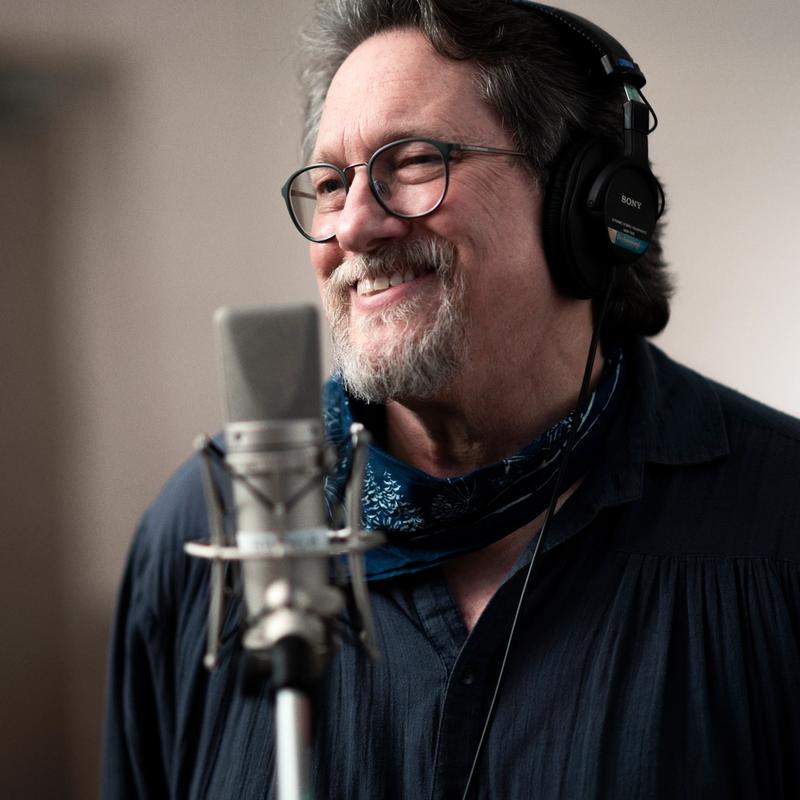
Jerry Douglas
When did you know you’d hit the sweet spot?
Douglas: When we started I had a little bit of trepidation because John is an established artist and has been since the late seventies. So I walked softly for a little while until I felt that he totally trusted me and wanted to just write and perform the songs while letting me mould the band and arrangements around him. John had never played with these people; he was a little surprised at how good it was. It was easy from there.
Hiatt: We didn’t have any expectations, which was probably good. We knew the first day that we were making something that was more than maybe the sum of the parts – and we did ‘Mississippi Phone Booth’, which is about as greasy as you can get without a set of drums.
So you deliberately didn’t pick drums?
Hiatt: Jerry came into the Leftover Feelings project thinking we were going to use drums; I said I’d like to try without. I think back to my old favourite records, even if they’re blues or rockabilly or early rock, they’re not that loud. Back in those days it might be somebody beating on a box or something and it was a backbeat - it's almost more implied than what's actually there. I thought I bet we can do that with these five musicians; get in a rhythm that kind of ghosts a drummer without the drummer actually showing up! It’s like that movie Spinal Tap, where the drummer always blows up. We’re tired of the drummer blowing up, so we’re just not going to employ one anymore!
Sounds like you loved working together.
Hiatt: We had a wonderful time; it’s all about the music. He’s terrific.
Douglas: I just feel I’ve got a new friend.

Leftover Feelings is out now via New West Records. The record premiered exclusively at Holler.
Photography by Patrick Sheehan


